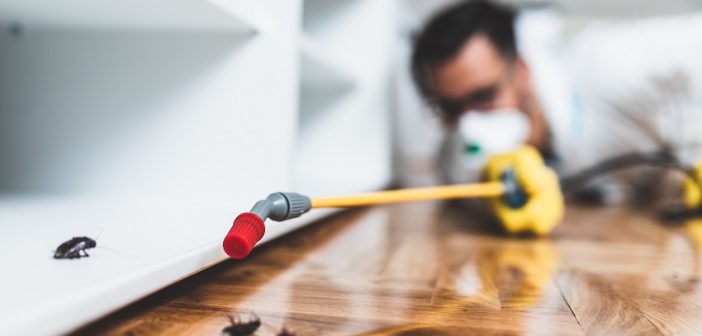Maintaining a healthy and comfortable living or working environment involves addressing pest control issues, which often entail the use of chemical agents. These typically are more effective than non-chemical alternatives and can help get the pest problem under control faster. To ensure both efficacy and safety, the selection of appropriate chemicals plays a pivotal role. When you’re not sure what to use, though, always consult with a professional.
Insecticides
Insecticides involve chemicals intended to manage or eliminate insects. Residential Pest Control insecticides fall into several categories based on their mode of action.
- Pyrethroids: Pyrethroids, synthetic compounds mimicking natural insecticide pyrethrin derived from chrysanthemum flowers, find wide use in residential pest control products. Their low toxicity to humans and pets makes them popular. Pyrethroids operate by disrupting insect nervous systems, causing paralysis and eventual death. However, some insects have developed resistance to pyrethroids over time.
- Neonicotinoids: Neonicotinoids serve as systemic insecticides absorbed by plants and distributed through their tissues. These chemicals target insect central nervous systems. While effective against a broad spectrum of pests, neonicotinoids have come under scrutiny for potential harm to pollinators, such as bees.
- Insect Growth Regulators: IGRs disrupt the growth and development of insects, impeding maturation and reproduction. Often used alongside other insecticides, they enable targeting multiple stages of an insect’s life cycle. This can be more effective than using a single type of chemical, as it helps prevent new pests that may be less impacted by the other types.
Rodenticides
Rodenticides comprise chemicals formulated to eliminate rodents like rats and mice. These chemicals encompass the following.
- Anticoagulant Rodenticides: These compounds interfere with rodents’ blood clotting processes, leading to internal bleeding and eventual death. Anticoagulant rodenticides exist in first-generation and second-generation forms. Prolonged use of second-generation rodenticides has raised concerns regarding potential impacts on non-target wildlife.
- Non-Anticoagulant Rodenticides: Some rodenticides affect rodents’ nervous systems, inducing paralysis and death. Their mode of action tends to be faster compared to anticoagulants.
Repellents
Repellents involve chemicals or substances that discourage pests from entering specific areas. They may not eradicate pests but effectively deter them to keep them from infesting a home. Common repellents include the following.
- Insect Repellents: These are applied to skin or clothing to ward off insects such as mosquitoes and ticks. DEET and picaridin are widely used insect repellents.
- Animal Repellents: Animal repellents discourage wildlife like deer or rodents from gardens or property. Options include chemical repellents or physical barriers like fencing.
Using Pest Control Methods
Being cautious and adhering to local regulations are imperative when using these chemicals for pest control. Misuse or excessive use of pesticides can yield adverse environmental and health consequences. To mitigate risks, consider the following guidelines.
- Seek assistance from a licensed pest control professional for a comprehensive pest assessment and appropriate treatment recommendations.
- Carefully read and adhere to label instructions on pesticide products.
- Store pesticides in their original containers, out of reach of children and pets.
- Opt for the least toxic and most environmentally friendly solutions whenever possible.
- Explore non-chemical pest control methods, such as integrated pest management, emphasizing prevention and reducing reliance on chemical treatments.
The choice of pest control chemicals should be tailored to the specific pest infestation and situation. Prudent and responsible chemical usage ensures the safety of humans, pets, and the environment. When in doubt, consulting a qualified pest control expert can provide invaluable guidance on selecting effective and safe pest control methods.





I am usually to blogging we really appreciate your posts. The article has really peaks my interest. Let me bookmark your blog and keep checking choosing details.
To acquire the most recent application from our Honista website, simply follow the direct download link located at the conclusion of this article. This application is designed to be lightweight, compatible with all Discord branches, and offers robust browser support through Vencord Website.